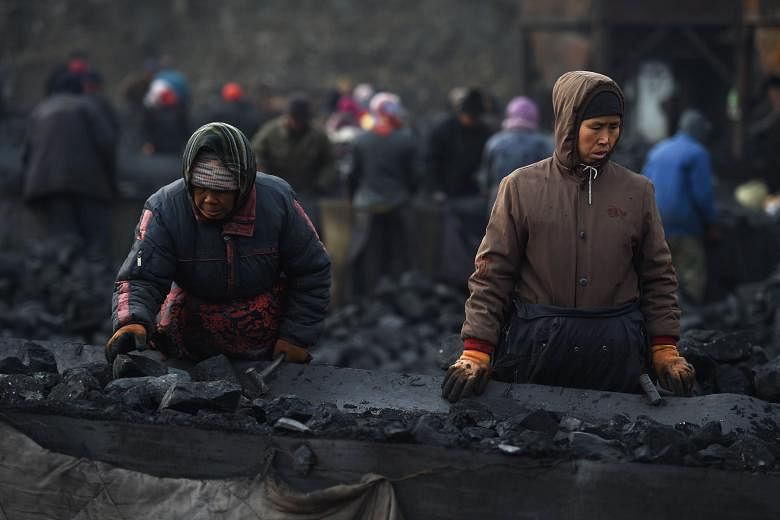PARIS • Hundreds of large companies, eager to influence or understand negotiations, gathered alongside dozens of top political leaders at the Paris summit where discussions were bound to deeply affect their future business models.
The pact, in which 195 countries pledged to steer the world away from the fossil fuel era, threatens disaster for businesses that sell oil, coal or old-fashioned cars, but is a potential miracle for makers of solar panels, high-tech home insulation and efficient lighting.
That means companies with business models threatened by a low-carbon world need to refocus, and fast, said Mr Lyndon Rive, CEO of SolarCity, an American provider of home solar-energy systems chaired by billionaire Elon Musk.
For people who sell oil, Mr Rive said on the sidelines of the Paris summit: "You're going to defend that job because that's your livelihood. But your livelihood is going to be destroyed."
Global governments and companies are counting the costs and benefits of the agreement, which calls for wholesale transformations of energy, transportation and dozens of other lines of business.
Fossil fuel producers and countries that depend on them face massive, costly disruption. Players in up-and-coming industries like renewable power and energy efficiency are looking at an unprecedented opportunity.
"As a major oil and gas company, we are clearly at stake in these discussions," Mr Patrick Pouyanne, the chief executive officer of French oil giant Total SA, said. But "an optimist sees in every difficulty an opportunity. I'm definitely an optimist; I have to be".
The deal will likely accelerate investments in technologies like renewable energy and electric vehicles, especially if more countries join the European Union and parts of North America in imposing a price or tax on carbon.
The United Nations estimates that upwards of US$1 trillion (S$1.4 trillion) a year in spending is required to de-carbonise the global economy and prevent temperature rises scientists say could flood coastal cities, disrupt agriculture and destroy ecosystems.
Executives from more traditional companies have a similar, if less stark, view as Mr Rive. Mr Peter Terium, CEO of German utility RWE AG, said companies like his would have to learn from the successive transformations of International Business Machines to stay relevant in a new energy system.
That does not mean Big Oil will be closing up shop any time soon, but energy investment will increasingly shift towards green power.
While solar is advancing quickly in terms of cost and efficiency, the industry has not yet figured out how to stockpile sufficient power for times that the sun is not shining.
Until that problem is solved there will be significant demand for coal, gas or nuclear power.
"Gas is one of the most compelling opportunities in the short to medium term," Mr Helge Lund, the CEO of British gas producer BG Group, said in Paris. A world totally without fossil fuels is "beyond the meaningful planning horizon", leaving companies like his plenty of time to keep drilling, he said.
Coal companies will be especially hard hit. The Stowe Global Coal Index, which tracks the stock performance of 26 major producers, has lost 59 per cent of its value this year.
While environmentalists and politicians argue that the overall transformation will be positive for economies and jobs, millions of workers will face severe consequences.
"Any transition has obviously not got everybody benefiting in equal amounts", creating a need for programmes like job retraining, US Energy Secretary Ernest Moniz said in Paris.
BLOOMBERG

